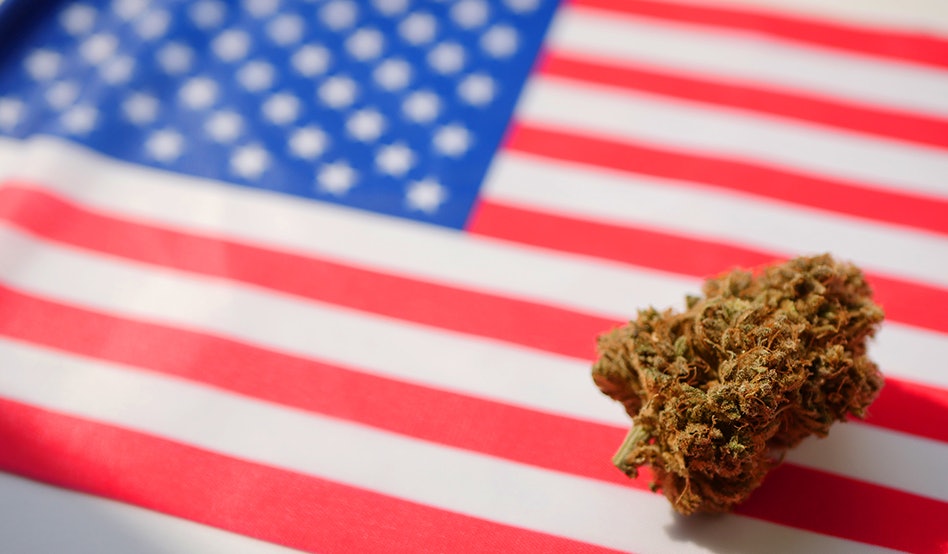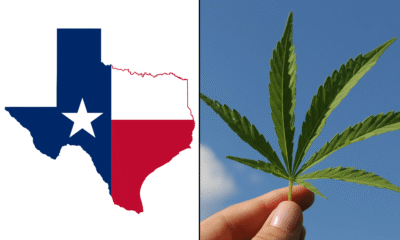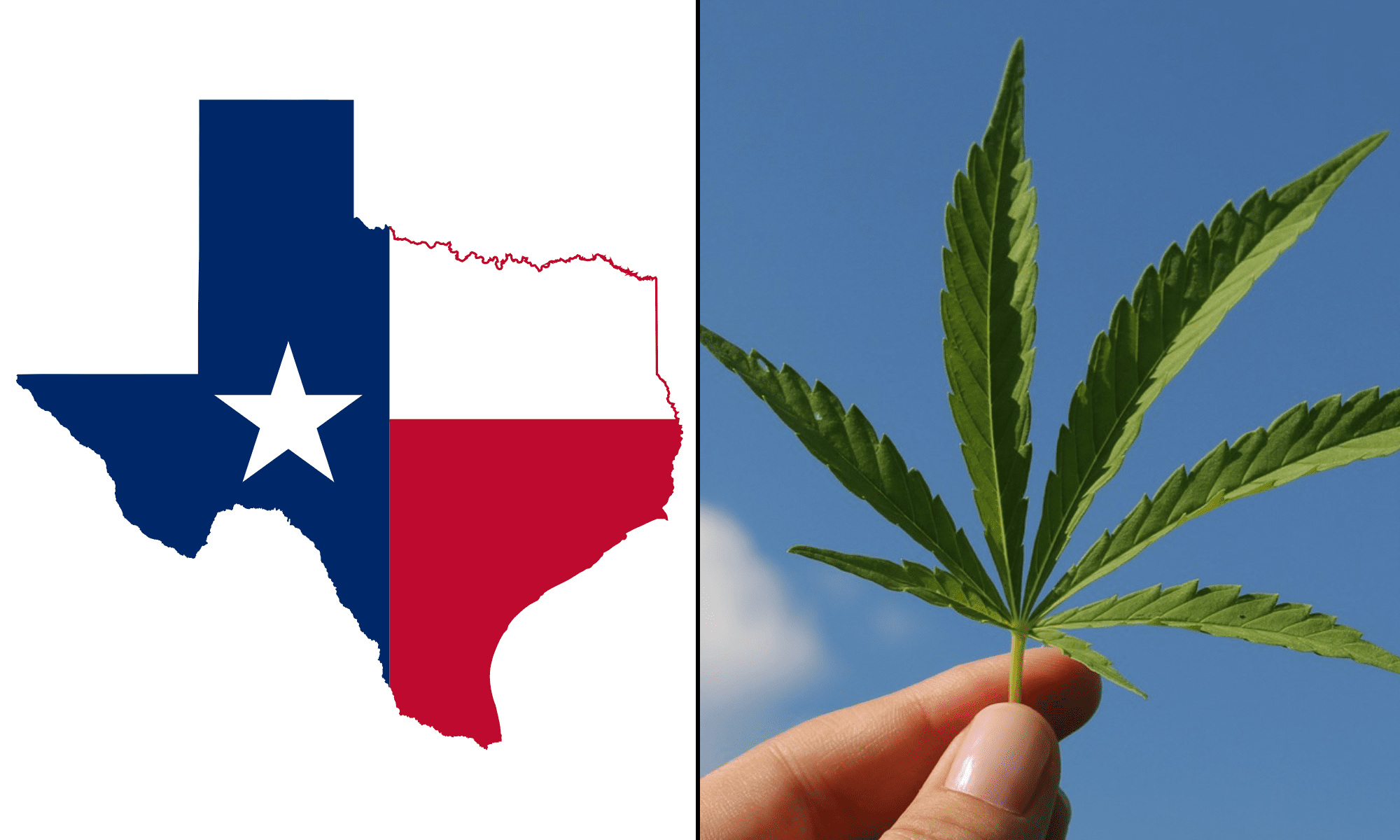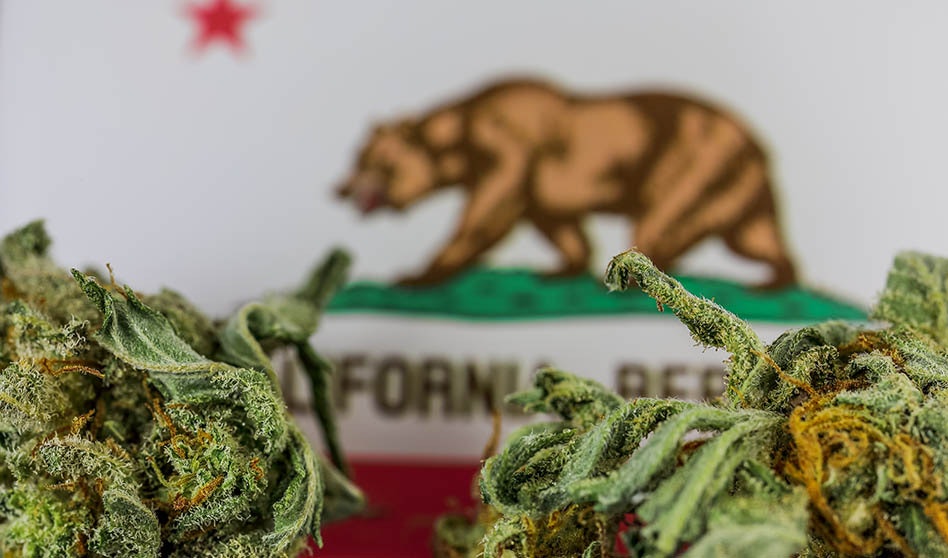featured
DEA Fails to Set Cannabis Rescheduling Briefing Schedule; No Progress Made on Interlocutory Appeal
Published
5 months agoon

Despite some cannabis industry hopefuls suggesting that a President Donald Trump administration could swoop in and save the day, zero progress has been made on the rescheduling process in the past 90 days.
The Drug Enforcement Administration’s (DEA) attorneys submitted a joint status report on April 10 to John J. Mulrooney, the agency’s chief administrative law judge (ALJ) tasked with overseeing a fair and transparent hearing process for a proposed rule to reclassify cannabis from Schedule I to Schedule III under the Controlled Substances Act.
The substance of the status update was limited to fewer than 100 words, with the DEA notifying Mulrooney that its acting administrator—currently Derek S. Maltz—has failed to set a briefing scheduling. While Trump picked agency veteran Terry Cole to be the next DEA administrator on Feb. 11, the U.S. Senate has yet to confirm that nomination.
“To date, movants’ interlocutory appeal to the acting administrator regarding their motion to reconsider remains pending with the acting administrator,” DEA attorneys wrote in the April 10 update. “No briefing schedule has been set.”
The briefing schedule is to allow the hearing’s designated participants to file briefs with the DEA administrator in relation to an interlocutory appeal that Mulrooney granted on Jan. 13.
Mulrooney granted the rare appeal amid allegations that the DEA participated in ex parte communications with anti-rescheduling participants—communications that are prohibited under the Administrative Procedures Act (APA).
More specifically, the judge denied a motion to reconsider the DEA’s role as the proponent of the proposed rule filed by a subset of pro-rescheduling designated participants—cannabis company Village Farms International, veterans group Hemp for Victory and the Connecticut Office of the Cannabis Ombudsman (OCO), collectively referred to as “the movants.”
Editor’s note: The DEA’s April 10 joint filing was on behalf of itself and the movants, as requested by Mulrooney. Shane Pennington, partner at Blank Rome LLP, was included on the filing. He represents Village Farms and Hemp for Victory. OCO withdrew itself as a designated participant and is no longer involved as a movant.
Although Mulrooney dismissed the movants’ requested relief in early January to strip the DEA of its status in the hearing process, he took the matter seriously enough to grant the appeal and order a stay before the hearing—initially scheduled to run from Jan. 21 to March 6—had begun, indefinitely delaying the process.
In doing so, he ordered the DEA to work together with the movants to file a joint status update every 90 days while the process is stayed by the appeal.
“As must have been anticipated by the movants, an interlocutory appeal returns jurisdiction of the matter to the full control of DEA agency leadership in all respects,” Mulrooney wrote in the order.
Once the briefing schedule is issued, the DEA’s head—whether that be Maltz or Cole—can entertain oral arguments if he “desires” and then issue a binding, written decision to Mulrooney on the appeal and if the hearing process should resume.
Many developments have unfolded since Mulrooney issued his Jan. 13 order:
- Jan. 15, 2025: Mulrooney correctly asserted that the Department of Justice (via former Attorney General Merrick Garland’s signature) issued the notice of proposed rulemaking to reschedule marijuana after the judge suggested two months earlier that the DEA had issued the NPRM. The judge also recommended to former DEA Administrator Anne Milgram that all roughly 20 designated participants be included in the briefing schedule.
- Jan. 20, 2025: Upon his inauguration, Trump issued a regulatory freeze on all executive departments and agencies, instructing them not to propose or issue “any rule in any manner, including by sending a rule to the Office of the Federal Register.”
- Feb. 7, 2025: Mulrooney granted a withdrawal request from one of the movants behind the interlocutory appeal—the Connecticut Office of the Cannabis Ombudsman—leaving attorney Matthew Zorn, a partner at Yetter Coleman LLP, no choice but to drop out of the hearing process. Zorn has one of the most successful records against the DEA, including a 2019 lawsuit resulting in Dr. Sue Sisley and the Scottsdale Research Institute being allowed to grow their own cannabis for clinical research.
- Feb. 17, 2025: Doctors for Drug Policy Reform, represented by Yetter Coleman LLP, filed a 56-page brief in the U.S. Court of Appeals for the D.C. Circuit related to its exclusion from the rescheduling hearing process. The filing made public the 163 organizations/individuals who requested to participate in the hearing, the rejection letters sent to 138 applicants and the “cure letters” the DEA sent to several anti-rescheduling entities, providing them the opportunity to submit supplemental information showing that they met the “interested person” status under the APA—documents Milgram previously kept from the public. The documents shed light on the movants’ claim that the DEA participated in improper communications.
- March 17, 2025: Mulrooney granted a motion for one of the interlocutory appeal movants—Hemp for Victory—to drop Perkins Coie as its counsel in the rescheduling process shortly after Trump targeted the Seattle-based law firm in an executive order.
- April 2, 2025: Shane Pennington, the attorney who represents Village Farms International, switched law firms, joining Blank Rome LLP. Pennington remains as the legal counsel for Village Farms in the rescheduling process
- April 7, 2025: Pennington filed a notice of appearance with Mulrooney to represent Hemp for Victory in the rescheduling process.
This week’s news that the DEA has made zero headway on resolving the stay from the interlocutory appeal could indicate that the agency is OK with the status quo—leaving cannabis listed alongside heroin, LSD and ecstasy as a substance with no currently accepted medical use and as having the highest potential for abuse.
Although the U.S. Department of Health and Human Services determined through scientific and medical evaluation that cannabis has currently accepted medical use in the U.S. and recommended in August 2023 that it be rescheduled, former DEA Administrator Anne Milgram did not sign a notice of proposed rulemaking for that recommendation—a document typically signed by someone in her position.
Instead, the DEA stated in May 2024 that it “has not yet made a determination as to its views of the appropriate schedule for marijuana” after former Attorney General Merrick Garland signed the proposal.
Given the DEA’s history of opposing cannabis rescheduling, some may wonder what’s stopping the agency from sitting idly on the interlocutory appeal until it’s forced to act, perhaps by a presidential directive or by the Department of Justice stepping in via Attorney General Pam Bondi.
For some cannabis industry stakeholders, the focus is on Trump, who indicated along the 2024 presidential campaign trail that he supported relisting cannabis to Schedule III. Since taking office, however, he’s been silent on the matter.
Should the DEA stall too long from resolving the interlocutory appeal, the movants could potentially try and force the agency’s hand in the D.C. Circuit, claiming that the APA forbids the DEA from ignoring Mulrooney’s order and unreasonably delaying the process. As of now, cannabis rescheduling remains in the DEA’s wheelhouse.
Although Trump issued a regulatory freeze on his inauguration day, that executive order clarified that no new proposed rules or final rules could be sent to the Office of the Federal Register until a department or agency head appointed or designated by Trump had a chance to review and approve the rule.
In other words, the proposed rule to reschedule cannabis was already in place. Nothing is stopping the DEA’s acting administrator under Trump from reviewing the proposed rule and issuing a final rule.

Author: mscannabiz.com
MScannaBIZ for all you Mississippi Cannabis News and Information.
You may like
-


California reaps over $250 million from 2nd Quarter cannabis sales
-


Meet the World’s First Cannabis Rugby Team: Crewmen 7’s Tackle Stigma Head-On
-


Texas Supreme Court Refuses To Take Up Marijuana Case Challenging State’s Rejection Of Local Decriminalization Law
-


California Passes Bill to Ban Intoxicating Hemp Products Outside Cannabis Market
-


Pending Federal Hemp Legislation Could Reshape The Legal Industry By Banning Some Products (Op-Ed)
-


Verano Proposes to Redomicile Parent Company From British Columbia to Nevada
featured
Meet the World’s First Cannabis Rugby Team: Crewmen 7’s Tackle Stigma Head-On
Published
1 hour agoon
September 15, 2025
Picture this: a rugby pitch, sweat in the air, bodies colliding with that mix of grace and chaos only rugby can deliver. On the sideline, instead of the usual beer logos and corporate banners, you see RAW Rolling Papers. Instead of Budweiser, there’s Beneleaves. Instead of a cooler stacked with light beer, there are capsules packed with CBD, CBG, and electrolytes.
Welcome to the world of Crewmen Rugby 7’s, the first cannabis-backed rugby squad in the United States. Born from a half-serious Instagram experiment and fueled by plant-based sponsorships, the Crewmen are rewriting what sports sponsorship looks like, and clearly enjoying the ride.

From a DM to a Movement
When Nigel Bowman launched the Crewmen, there was no big plan. No investors. No strategy deck. Just a phone, an idea, and an Instagram post.
“Crewmen Rugby 7’s is the first Cannabis Advocacy athletic organization in the United States. We strive to break the stigma between high-performance athletics and cannabis culture. I literally began this team on Instagram just to generate interest from local players for a small tournament. It caught wildfire and took off,” he told High Times.

That wildfire turned into a traveling squad of athletes who now compete in sevens tournaments, welcome players from around the world, and run onto the pitch wearing cannabis-branded kits.
RAW on the Jersey, Respect on the Pitch
If you know cannabis culture, you know RAW. Seeing the logo stamped on a rugby jersey is both a surprise and a statement. It says the old rules are changing.
“Crewmen Rugby is sponsored by amazing brands such as RAW Rolling Papers. Rugby is known for its hard game play and camaraderie,” Bowman said. “We wanted to change the dynamic of Alcohol Sponsorship to Cannabis Sponsorship in the aspect of promoting recovery and wellness. Our amazing sponsors help support the team with covering necessary tour expenses like housing, flights and uniforms. I keep great rapport with sponsors that have helped build us up.”

That partnership didn’t happen overnight. “All of our sponsorships were derived from the Instagram platform and direct messages to the companies. It took about a year and a half to gain sponsorship from RAW. It was well worth the wait to represent such an iconic brand within cannabis culture!”
The takeaway is clear: rugby doesn’t need beer logos to thrive. Cannabis brands can carry the culture too.
Recovery Is Part of the Game
The Crewmen aren’t just about uniforms. They’re leaning into recovery, showing that cannabinoids can help athletes keep going after the toughest hits.
“We have a line of custom-formulated hemp products from our vertical processor, Reverb Wellness, under Crewmen Brands. Some of these products include a topical 3:1 CBD to THC, rosin disposable vapes, recovery capsules with CBD:CBG:Electrolytes and pre-rolls. We also have a line of .510 thread cartridges processed by Beneleaves Limited for Medical and Recreational use in dispensaries around Ohio.”
For Bowman, the products double as proof that cannabis has a place in sports medicine and athlete care.
Stigma, Smashes, and Selling Jerseys
Rugby fields are usually a parade of beer and liquor logos. Cannabis logos, though? They still make people stop and stare. That’s exactly the point.
“Sports and athletics have stigmatized the use of cannabis for as long as I can remember. I started the Crewmen with the idea of putting well-known Cannabis brands in the face of the Rugby community. Athletes use cannabis or CBD to recover from intense workouts/games and I’d like to normalize it within the sports community.”
The reaction has been instant. “Being able to host international athletes is a true privilege. When we wear our uniforms to large-scale tournaments, people always want to buy one. I believe that it’s because they have never seen it before, as alcohol sponsors flood our Rugby Community. We just wanted to separate ourselves from the norm. We still maintain the high-performance aspect of the sport. While wearing the brands that have made a major impact on the Cannabis Community.”
Eyes on Rugbytown
Every team has a dream stage. For the Crewmen, it’s Rugbytown USA in Glendale, Colorado, one of the most prestigious sevens tournaments in the country.
“What would be next for Crewmen Rugby 7’s is ideally to make it to Rugbytown USA. That is the largest-streamed International 7’s competition in the United States. I’m hopeful that 2026 is our year. In previous years, Native Roots dispensary sponsored the Tournament based in Glendale, Colorado. So the rugby community isn’t unfamiliar with cannabis sponsors. But it’s more hush-hush than the narrative that we push with Crewmen Rugby 7’s.”
If a Team Were a Strain
Ask Bowman what strain captures his team, and he doesn’t miss a beat.

“If Crewmen had a signature strain, it would probably be in the Kush lineage. Kush has a wide array of crosses and I believe we showcase individuality while maintaining a common goal. I think we highlight the products under Crewmen Brands by Reverb Wellness very well. They have started to gain popularity nationwide. Even getting our topical to the Rugby Tens Championship in California and Rugbytown for international athletes to use for recovery. Our team is about educating people and players who are not informed about how Cannabis can improve overall health and quality of recovery.”
Shock, Curiosity, Amazement
Face the Crewmen on the field and it’s not just the rugby that gets people talking.
“The reaction that first comes across from our opponents and other spectators is amazement. It’s something a lot of players and staff haven’t seen before we brought Cannabis Sponsors to the table. Now more and more teams are diversifying their sponsors. I’d like to think that cannabis sponsorship will be a normal thing for all athletic associations within the coming years.”
A Gentleman’s Game Played by Hooligans
Bowman says it best: “Rugby is a very high-impact sport. A Gentleman’s Game Played By Hooligans, if you will. Cannabis Culture adds to the team’s identity by spreading education about the plant we are so passionate about. If it weren’t for a wacky idea to start a cannabis sports team one day when I was budtending, we wouldn’t exist. Chase your dream no matter how wacky people may think it is. There’s always at least one person willing to back your cause.”
What started as a shot in the dark is now a traveling crew with a mission. The Crewmen keep playing, keep teaching, and keep proving that the best culture is the one lived out loud.
Photos courtesy of Crewmen Rugby 7.

Author: mscannabiz.com
MScannaBIZ for all you Mississippi Cannabis News and Information.
featured
Texas Supreme Court Refuses To Take Up Marijuana Case Challenging State’s Rejection Of Local Decriminalization Law
Published
2 hours agoon
September 15, 2025
The Texas Supreme Court has declined to take up an appeal of a case concerning the state’s overturning of a local marijuana decriminalization law that was approved by voters in the city of San Marcus.
About five months after the state Fifteenth Court of Appeals rejected a lower court ruling that denied a temporary injunction to prevent the law from being enforced, the state Supreme Court on Friday sidestepped the case.
“The Texas Supreme Court refused to hear this case, siding with Greg Abbott’s handpicked judges and telling 82 percent of San Marcos voters their voices do not matter,” Catina Voellinger, executive director of Ground Game Texas, which was behind this and multiple other local reform measures, said.
“This is not just about marijuana. It is about whether working Texans get to make our own decisions, like the Texas Constitution says we should,” Voellinger said.
The lower court’s ruling—and this subsequent Supreme Court inaction—marks a setback for activists who’ve led the charge to enact local marijuana policy changes through the ballot, many of which have been contested by Texas Attorney General Ken Paxton (R).
“Texas has the biggest working-class population in the country, with most of us making $15 an hour or less. Meanwhile, millionaire politicians like Greg Abbott and Ken Paxton twist the courts to protect themselves and their rich donors,” Voellinger said. “They think we do not see what is happening, but we do. We know exactly how hard they have made it to survive here. They spend all their time trying to block us because they know the truth: the power is with us. And we are building a movement that cannot be stopped.”
Eric Martinez, executive director of Mano Amiga Action that partnered with Ground Game for the San Marcos initiative, said the high court’s decision represents a “direct attack on local democracy and on the working people of San Marcos—Black, Brown, white, immigrant, and poor—who came together to demand a better future.”
“The Texas Supreme Court had the opportunity to stand up for the will of voters and chose not to. Our communities passed decriminalization because we’re tired of people being jailed over a small amount of weed while real public safety needs go ignored. The courts may be stacked, but we outnumber them. We will not let the rich and powerful decide everything for us. This fight belongs to all of us: the movement will only grow stronger in numbers from here.”
Under the appellate court’s ruling, the judiciary determined that a trial court upholding the city law “abused its discretion” when it denied certain requests from the state asserting a constitutional right to preempt the city government. And specifically, it said state statute “prohibits local governments from putting up any barrier to the full enforcement of drug-related laws.”
“Texas law gives local governments and law enforcement officers a panoply of tools—such as the authority to issue citations and arrests—to enforce drug laws. Section 370.003 prohibits the City of San Marcos from making a policy that takes any of those tools off the table,” it said.
“No magic words were necessary for the Legislature to preempt the Ordinance with unmistakable clarity,” the court continued. “A plain and fair reading of the Ordinance presents irreconcilable inconsistency with Section 370.003.”
San Marcos was one of five cities during the November 2022 election where voters approved similar decriminalization initiatives after advocates with Ground Game Texas and Mano Amiga Action secured ballot placement.
The ordinance made it so police could not issue citations or make arrests for class A and B misdemeanor marijuana possession offenses, with limited exceptions such as if the violation connected to an investigation into a felony-level narcotics case.
The measure also said police couldn’t issue citations for residue or paraphernalia in lieu of a possession charge. And they couldn’t use the odor of cannabis alone as probable cause for a search or seizure.
Despite the state’s resistance and the latest development in San Marcos, advocates have seen several courts rule in their favor amid the legal challenges.
For example, in February, a Texas judge has ruled that a cannabis decriminalization law approved by Dallas voters last year can continue to be implemented—denying a request from the state attorney general that sought to temporarily block the reform as a lawsuit proceeds.
This doesn’t mean the lawsuit from Paxton is dead altogether. But, at least for the time being, the judge determined that the decriminalization policy can continue as the litigation unfolds.
Dallas Police Department had previously instructed officers to stop arresting or citing people for possession of up to four ounces of marijuana, in accordance with the voter-approved ballot initiative.
Gov. Greg Abbott (R) has lashed out against the municipal cannabis reform efforts.
“Local communities such as towns, cities and counties, they don’t have the authority to override state law,” the governor said last May “If they want to see a different law passed, they need to work with their legislators. Let’s legislate to work to make sure that the state, as a state, will pass some of the law.”
He said it would lead to “chaos” and create an “unworkable system” for voters in individual cities to be “picking and choosing” the laws they want abide by under state statute.
Abbott has previously said that he doesn’t believe people should be in jail over marijuana possession—although he mistakenly suggested at the time that Texas had already enacted a decriminalization policy to that end.
In 2023, Ground Game released a report that looked at the impacts of the marijuana reform laws. It found that the measures will keep hundreds of people out of jail, even as they have led to blowback from law enforcement in some cities. The initiatives have also driven voter turnout by being on the ballot, the report said.
Another cannabis decriminalization measure that went before voters in San Antonio that year was overwhelmingly defeated, but that proposal also included unrelated provisions to prevent enforcement of abortion restrictions.
Meanwhile in Texas, there’s been a contentious debate in the legislature over Texas hemp policy, with some pushing for an outright ban on any cannabis products containing THC. But those efforts fell short during the regular and special sessions this year.
The governor, in response, signed an executive order last week to institute age and labeling requirements for hemp products.
—
Marijuana Moment is tracking hundreds of cannabis, psychedelics and drug policy bills in state legislatures and Congress this year. Patreon supporters pledging at least $25/month get access to our interactive maps, charts and hearing calendar so they don’t miss any developments.![]()
Learn more about our marijuana bill tracker and become a supporter on Patreon to get access.
—
Separately, Texas officials have taken another step toward implementing a law to significantly expand the state’s medical marijuana program—proposing rules to to let physicians recommend new qualifying conditions for cannabis and to create standards for allowable inhalation devices in line with legislation enacted by lawmakers and the governor earlier this year.
Last month, the Department of Public Safety (DPS) separately posted a set of additional rules in the Register to increase the number of licensed medical marijuana dispensaries in Texas under the recently enacted legislation.
DPS will ultimately be issuing 12 new licenses for dispensaries across the state. Currently there are only three. The additional licensees will go through a competitive process, with officials prioritizing Texas’s public health regions to optimize access.
The first round of licenses will be awarded to nine of 139 applicants who submitted their forms during an earlier application window in 2023. DPS will select those nine licensees on December 1. The 2023 applicants that didn’t receive a license, as well as any new prospective licensees, will have another shot at getting their license during a second round where awardees will be announced on April 1, 2026.
The 2023 group can still revise their applications up until September 15. New would-be dispensary owners have until that date to submit their applications as well.
Image element courtesy of AnonMoos.

Author: mscannabiz.com
MScannaBIZ for all you Mississippi Cannabis News and Information.
featured
California Passes Bill to Ban Intoxicating Hemp Products Outside Cannabis Market
Published
3 hours agoon
September 15, 2025
California lawmakers are shutting the door on delta-8 and delta-10 THC entirely, while other intoxicating hemp products will no longer be sold in smoke shops, gas stations and convenience stores in the name of public health and safety.
Pending Gov. Gavin Newsom’s signature, Assembly Bill 8 will outlaw synthetic cannabis products and inhalable cannabis products containing cannabinoids derived from hemp. The Assembly voted, 73-1, to concur with Senate amendments on Sept. 13, after the upper chamber voted, 37-0, the previous day to pass the bill.
Sponsored by Assembly Majority Leader Cecilia Aguiar-Curry, D-Winters, the 82-page legislation also seeks to expand the authority for state and local enforcement agencies to inspect, seize and destroy unlawful products.
In addition, it would integrate products containing concentrated cannabinoids derived from hemp, other than CBD isolate, into the state’s licensed and regulated cannabis supply chain. Aside from a pure CBD isolate, all other products would fall under the definition of a cannabis product.
Now being prepared for the governor, these provisions in the bill include an effective date of Jan. 1, 2028.
Sen. Angelique Ashby, D-Sacramento, presented the legislation for a third reading on Sept. 12 in the upper chamber.
“A.B. 8 seeks to protect public health by eliminating access to intoxicating hemp products outside of authorized dispensaries,” she said. “[The bill] will give state agencies and local governments the tools they need to protect our kids from synthetic products.”
The bill’s passage follows executive action by Newsom in September 2024, when he issued emergency regulations to require that hemp food, beverage and dietary products intended for human consumption have no detectable THC or other intoxicating cannabinoids per serving, create a minimum age to purchase hemp products to 21, and limit the number of servings of hemp products to five per package.
“We will not sit on our hands as drug peddlers target our children with dangerous and unregulated hemp products containing THC at our retail stores,” Newsom said at the time. “We’re taking action to close loopholes and increase enforcement to prevent children from accessing these dangerous hemp and cannabis products.”
In June 2025, the California Department of Public Health (CDPH) issued a notice of proposed rulemaking to follow through, estimating that the ban would cause 115 businesses to close and more than 18,400 jobs to be lost within five years of implementation, with more than $3.1 billion in lost revenue.
When the state Assembly passed A.B. 8 that same month, before sending it over to the Senate, Aguiar-Curry said her 2025 bill aimed to remedy the unintended consequences of legislation that she authored in 2021 to create a “well-regulated and safe hemp market” for Californians.
“Bad actors have abused it to sell intoxicating hemp products outside dispensaries and without age limits. This is illegal and is absolutely unacceptable,” Aguiar-Curry said in June. “A.B. 8 is an important step forward in protecting our kids and ensuring intoxicating products are sold safely and legally. By closing dangerous loopholes, we’re reinforcing our commitment to responsible regulation and supporting struggling legal businesses competing with illegal markets.”
Intoxicating hemp products, which often aren’t subject to the excessive tax or regulatory structures of state-sanctioned cannabis markets, undercut businesses that pay a premium to operate and provide meaningful state and local funding. Under A.B. 8, all concentrated cannabinoids derived from hemp, other than CBD isolate, would be subject to the state’s 15% excise tax.
While A.B. 8 represents a victory for California’s licensed cannabis businesses, the triumph could have been greater.
In particular, a Senate amendment removed language from the bill that would have repealed the requirement for the California Department of Tax and Fee Administration (CDTFA) to increase the cannabis excise tax to make up for lost revenue from the 2022 elimination of the state’s cannabis cultivation tax.
While the state’s excise tax automatically increased from 15% to 19% on July 1 due to a budget trailer that Newsom orchestrated in 2022, California lawmakers passed legislation this session to roll back that rate to 15% and suspend the CDTFA from increasing it until at least June 30, 2028. That bill is also heading to Newsom’s desk.
RELATED: California Cannabis Excise Tax Going Back to 15% Next Month, Pending Governor’s Signature
The Senate also amended A.B. 8 to clarify that cannabinoid products derived exclusively from industrial hemp may be shipped through the state without entering the licensed market—provided they are not sold in California—or shipped out of California by a licensee. This aligns with interstate commerce protections provided in the 2018 Farm Bill, which federally legalized commercial hemp cultivation.
Another Senate amendment provides that, until Jan. 1, 2028, licensed cannabis manufacturers can only use cannabinoid concentrates and extracts that are manufactured or processed exclusively from cannabis obtained from a licensed cultivator.
In a bill analysis, lawmakers referenced a February 2025 white paper titled The Great Hemp Hoax, which was co-authored by Tiffany Devitt, a board member for the California Cannabis Operators Association (CaCOA) and the director of regulatory affairs for licensed retailer March and Ash. The white paper included an analysis of 104 products marketed as hemp from 68 brands, finding that 95% contained chemically synthesized cannabinoids.
Two California retailers, March and Ash and Embarc, and the United Food and Commercial Workers (UFCW) Local 135 sponsored the report, with testing provided by Infinite Chemical Analysis Labs.
“Additionally, over 88% of tested products exceed the maximum amount of THC allowed to be classified as hemp products in California,” according to the A.B. 8 analysis. “The white paper found that, on average, vape products supposedly derived from hemp had THC equivalency levels 268% above the state’s threshold for adult-use cannabis.”
In opposing A.B. 8, the Hermosa Coalition for Drug-Free Kids argued that Californians never voted to legalize intoxicating hemp products when they passed Proposition 64 to legalize adult-use cannabis in the November 2016 election.
“We are also opposed to integration because the data on the harms of these products are only continuing,” the coalition wrote. “Additionally, California’s legal cannabis industry is very poorly regulated. How on earth can it handle hemp? THC is THC. Whether it’s from marijuana or hemp, it is wreaking all kinds of public health harm.”
The California Department of Cannabis Control (DCC) reported that the legislation would cost roughly $2.5 million to implement next fiscal year and approximately $5.8 million in ongoing annual costs, according to the California Senate Appropriations Committee, which approved the bill in a unanimous vote last month.
Amy O’Gorman Jenkins, the executive director of the CaCOA, which sponsored A.B. 8, called the Legislature’s passage “a big win.”
“By bringing hemp-derived THC products under proper oversight while preserving access to safe non-intoxicating products, we are one step closer to finally creating a level playing field our licensed cannabis businesses deserve,” she said. “A.B. 8 draws a clear line: In California, intoxicating hemp products should no longer undercut public health, youth safety or the integrity of our legal cannabis market.”

Author: mscannabiz.com
MScannaBIZ for all you Mississippi Cannabis News and Information.

California reaps over $250 million from 2nd Quarter cannabis sales

Meet the World’s First Cannabis Rugby Team: Crewmen 7’s Tackle Stigma Head-On

Texas Supreme Court Refuses To Take Up Marijuana Case Challenging State’s Rejection Of Local Decriminalization Law

California Passes Bill to Ban Intoxicating Hemp Products Outside Cannabis Market

Pending Federal Hemp Legislation Could Reshape The Legal Industry By Banning Some Products (Op-Ed)

Verano Proposes to Redomicile Parent Company From British Columbia to Nevada

8,000 cannabis plants seized from illegal Bradford grow-op

New York Lawmakers Schedule Psychedelics-Focused Hearing To Discuss ‘Medicinal Value And Risks’ Of Psilocybin

Curaleaf Opens Cannabis Dispensaries in Florida, Ohio

How to Protect Your Outdoor Cannabis Crops From Pests

Feds provide anti-cannabis group a platform to bash legalization (Newsletter: September 15, 2025)

Dozen arrested after south Mississippi bust for illegal sales to underage customers

The Toking Traveler: Why Amsterdam Weed Is Mostly Boof

Arkansas Medical Marijuana Sales Are On Track To Set A New Annual Record

When Cannabis Brands Blur Into Youth Culture, Regulators Notice: Lessons From Tobacco’s Past

Rhode Island Marijuana Dispensary License Application Process Officially Launches

Middle school student found with cannabis in bookbag, Charles County deputies say

Smugglers who brought drugs on an industrial scale into Wales jailed

Attorney pulls out bag of cannabis in NC Supreme Court hearing

WHO AM I? Man wanted for New Bern cannabis store theft

Cannabis packages under scrutiny

California authorities shut down nearly $30 million worth of illegal cannabis operations

A Green Light for Cannabis? Europe Waits While the U.S. Untangles the Red Tape

Move Over, Booze: Weed Drinks Pulled $1.1 Billion in U.S. Sales in 2024

Alert: Department of Cannabis Control updates data dashboards with full data for 2023

Connecticut Appoints The US’s First Cannabis Ombudsperson – Yes there is a pun in there and I’m Sure Erin Kirk Is Going To Hear It More Than Once!

5 best CBD creams of 2024 by Leafly

EU initiative begins bid to open access to psychedelic therapies
New Study Analyzes the Effects of THCV, CBD on Weight Loss

Free delta-9 gummies from Bay Smokes

5 best autoflower seed banks of 2024 by Leafly

Discover New York’s dankest cannabis brands [September 2024]

Press Release: CANNRA Calls for Farm Bill to Clarify Existing State Authority to Regulate Hemp Products

Curaleaf Start Process Of Getting Their Claws Into The UK’s National Health System – With Former MP (Resigned Today 30/5/24) As The Front Man

May 2024 Leafly HighLight: Pink Runtz strain

Local medical cannabis dispensary reacts to MSDH pulling Rapid Analytics License – WLBT

Recreational cannabis on ballot for third time in South Dakota

5 best THC drinks of 2024 by Leafly

Horn Lake denies cannabis dispensary request to allow sale of drug paraphernalia and Sunday sales | News

Mississippi city official pleads guilty to selling fake CBD products

6 best CBD gummies of 2024 by Leafly

Nevada CCB to Accept Applications for Cannabis Establishments in White Pine County – “Only one cultivation and one production license will be awarded in White Pine County”

The Daily Hit: October 2, 2024

5 best delta-9 THC gummies of 2024 by Leafly

Weekly Update: Monday, May 13, 2024 including, New Guide for Renewals & May Board meeting application deadline

PRESS RELEASE : Justice Department Submits Proposed Regulation to Reschedule Marijuana

5 best THCA flower of 2024 by Leafly

People In This State Googled ‘Medical Marijuana’ The Most, Study Shows
Trending
-

 California Cannabis Updates1 year ago
California Cannabis Updates1 year agoAlert: Department of Cannabis Control updates data dashboards with full data for 2023
-

 Breaking News1 year ago
Breaking News1 year agoConnecticut Appoints The US’s First Cannabis Ombudsperson – Yes there is a pun in there and I’m Sure Erin Kirk Is Going To Hear It More Than Once!
-

 best list1 year ago
best list1 year ago5 best CBD creams of 2024 by Leafly
-

 Business12 months ago
Business12 months agoEU initiative begins bid to open access to psychedelic therapies
-

 cbd1 year ago
cbd1 year agoNew Study Analyzes the Effects of THCV, CBD on Weight Loss
-

 Bay Smokes1 year ago
Bay Smokes1 year agoFree delta-9 gummies from Bay Smokes
-

 autoflower seeds12 months ago
autoflower seeds12 months ago5 best autoflower seed banks of 2024 by Leafly
-

 cannabis brands12 months ago
cannabis brands12 months agoDiscover New York’s dankest cannabis brands [September 2024]





